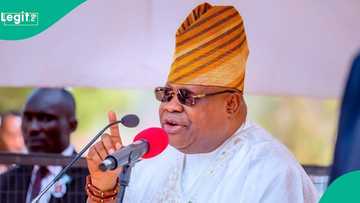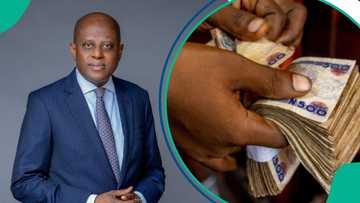Experts Advocate Improved Living Conditions for Youth, People With Disabilities, Refugees
- Experts recently converged in Ibadan to make a case for people with disabilities, youth, and other vulnerable groups at a workshop held to help youth improve their livelihoods
- At the event, stakeholders canvassed inclusion of vulnerable groups in governance and increased attention to the welfare of youth, people with disabilities, refugees, and displaced groups
- Bukola Akinbola, a law professor from the University of Ibadan, also warned the media against media misrepresentation of vulnerable groups
Ibadan, Oyo state - Professionals and educational stakeholders have advocated for adequate attention to the welfare of vulnerable, displaced and disadvantaged groups who have suffered long-term marginalisation in Nigeria.

Source: Original
At a workshop on African Youth Pathways to Resilience in Ibadan recently, they emphasised the need for inclusivity in governance and empowerment.
Speakers at the event noted that inclusion is integral to eliminating barriers to African youth pathways to social change and dignifying living standards.
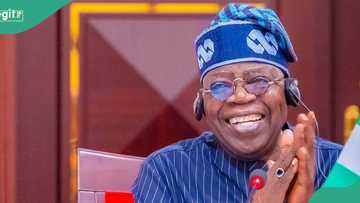
Read also
Apply: 3 job, loan opportunities recently shared by FG that youths, academics, others can put in for
The workshop, which heralded the policy-driven research titled African Youth Pathways to Resilience and Systems Change (AYPReS), was organised by the Partnership for African Social and Governance Research (PASGR), Kenya, and supported by the MasterCard Foundation.
Advocacy against media misrepresentation of vulnerable groups
In her keynote remarks, Professor Bukola Akinbola, Head of the Department of Jurisprudence and International Law at the Faculty of Law, University of Ibadan, appealed to the media to portray persons with disabilities and other vulnerable individuals from the perspective of their strengths, rather than their disabilities, which amounts to prejudice.
“Mainstreaming youths with disabilities in education and skills training is the right direction to go for development. Ensure inclusive curricula and teaching methods. Promote equal access to opportunities for resilience and independence.” Akintola noted
The law Professor said, “IDPs face some challenges, some of them are raped and they get no justice. IDPs were not planned for by the government, they don’t have access to justice, Legal Aid need to step in to help these vulnerable people.”
Speaking at the workshop, Dr Pauline Ngimwa, the Head of Professional Development and Training Programme at PASGR, noted that the main purpose of the Policy-inclined project is to understand the perceptions of the marginalised youths to suggest policies and interventions to ameliorate the problems facing them.
Dr Ngimwa came in the company of PASGR's Programme Officer, Rose Njage and Monitoring and Evaluation Officer, Martin Kapchanga.
“AYPReS project focuses on voices and agency (lived experiences) of all young women and men, including the marginalized groups of People with Disabilities, Refugees and Displaced Persons, unemployed youths, their perspectives of dignified and fulfilling work, resilience drivers, as well as what systems change would look like, build a critical mass of young researchers researching youth employment," Ngimwa expressed.
Call for advocacy through research-driven policies
The Nigeria project Principal Investigator for PASGR, Dr Babatunde Ojebuyi, noted that the programme aims to bring changes through research-driven policies.
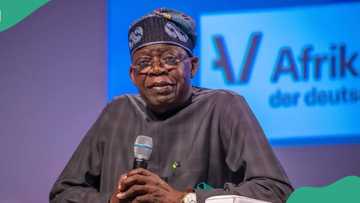
Read also
FG rolls out N10m interest-free loans for University, Polytechnic staff as part of empowerment drive
Dr Ojebuyi said since the project is about influencing policies that will affect the youth and the vulnerable persons, it is important to let them lend their voices to the project.
"This workshop is an inception programme in Nigeria to hear the voices of youths, especially the marginalised ones. We are targeting persons with disabilities, those in the IDPs and other areas.
"We want to hear their voices in a way that will bring policy change. We can't describe for them, we need to hear from them. It is to bring about the Nigerian content into it because this programme is going on in ten African countries, Kenya, Uganda, Rwanda, Ethiopia, Ghana, Nigeria, Senegal, Benin, Togo and Cote d’Ivoire.” Ojebuyi explained.
Participants speak at workshop
The inception workshop was attended by participants from youth organisations, academia, government youth agencies, civil society organisations, researchers, persons with disabilities, Social Workers, the media, and other Legal experts on RDPs, young entrepreneurs, among others.
Former National Assistant Secretary of People with Disabilities, Mr Yusuf Olatunji, stressed the need for those empowering people with disabilities to do more than give them wheelchairs and crutches.
“Access plus participation is equal to inclusion. Sadly, empowerment for the PWD in our society is mobility and not empowerment. The majority of PWD need to be helped deliberately and seriously. Many youth with disability are in both formal and informal sectors, but the attention to help them is low.” Olatunji stressed.
Another participant, Mariam Saka, expressed frustration that youth in the informal sector go through in seeking support for their business.
She said, “The Government pays no attention to the informal sector. Much of the attention is on the civil servants, even if those in the informal sector are about 80%.”
A youth entrepreneurship development trainer, Precious Fela-Steve, underscored the importance of technology in business growth, which he said will boost the resilience of the Nigerian youth entrepreneurs.
“The reach will be limited without technology. Tech bridges a gap already existing in various sectors. Today, information is available to help people manage their lives better. But the awareness of the relevant information is important, and the willingness of the youth to take action. Nigerians are very resilient, it is in their DNA,” Precious explained.
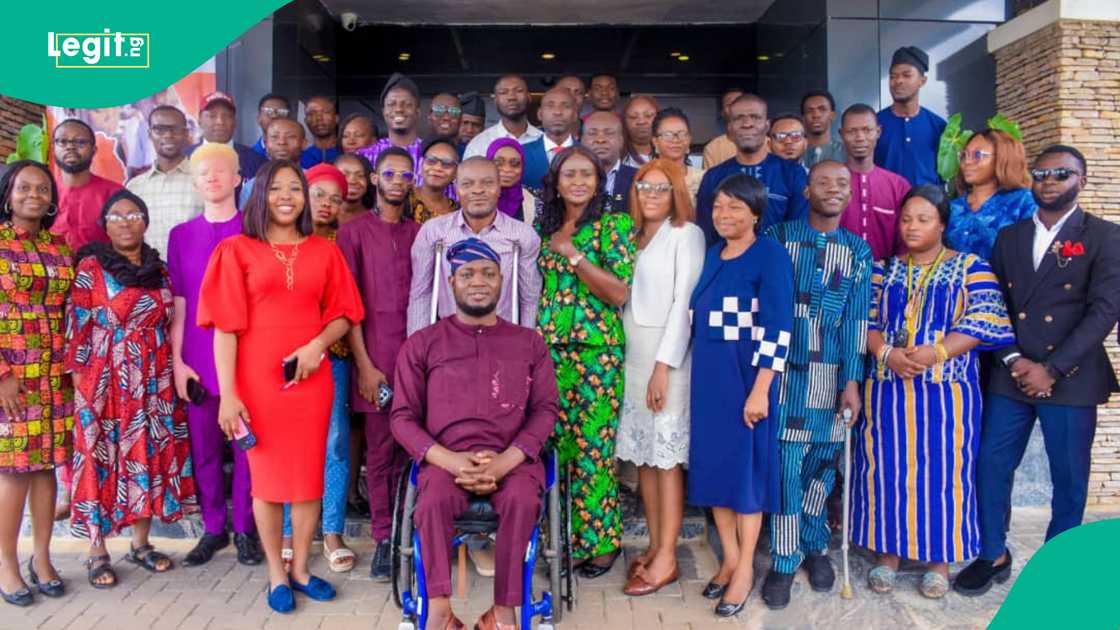
Source: Original
Stakeholders advocate for digital-driven youth empowerment
Legit.ng previously reported that the stakeholders in Nigeria’s technology and education sectors called on the federal government to adopt and support digital initiatives aimed at empowering young Nigerians with skills, mentorship, and sustainable opportunities.
Speaking at a recent youth-focused tech forum, Stanley Anyanwu, CEO of Owllup Limited, stressed that government involvement is crucial to scaling digital empowerment projects beyond isolated efforts.
Proofreading by James Ojo, copy editor at Legit.ng.
Source: Legit.ng
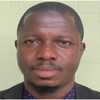
Ridwan Kolawole (Oyo State Correspondent) Oyo state's regional correspondent Ridwan Kolawole has over a decade of journalism practice, covering politics, crimes/conflict, education, and social issues. He is a recipient of the Practical Action and UKaid travel grant for a tour of El Salvador on evidence-based crime prevention and control (2016). He is a serial winner of the Next Generation Social Science in Africa programme Fellowship of the Social Science Research Council (SSRC, New York—2019, 2020 and 2022). For passion and knowledge mobilisation, Ridwan practices journalism and teaches it at the University of Ibadan.

Abdul-Hafeez Fadehan (Editorial Assistant) Abdul-Hafeez Fadehan is a Legit.ng journalist with over a year of experience writing for Punch Newspaper. He received his BSc in Criminology and Security Studies from FUOYE. His background in media communications and criminology, with practical experience in research, interviewing, and digital media, allows him to craft compelling narratives that drive positive change. Fadehan is an Editorial Assistant on Politics/CA Desk at Legit.ng. He is committed to ethical journalism, leveraging his skills to create a meaningful impact. Reach him at abdul-hafeez.fadehan@corp.legit.ng or 070622666732.


